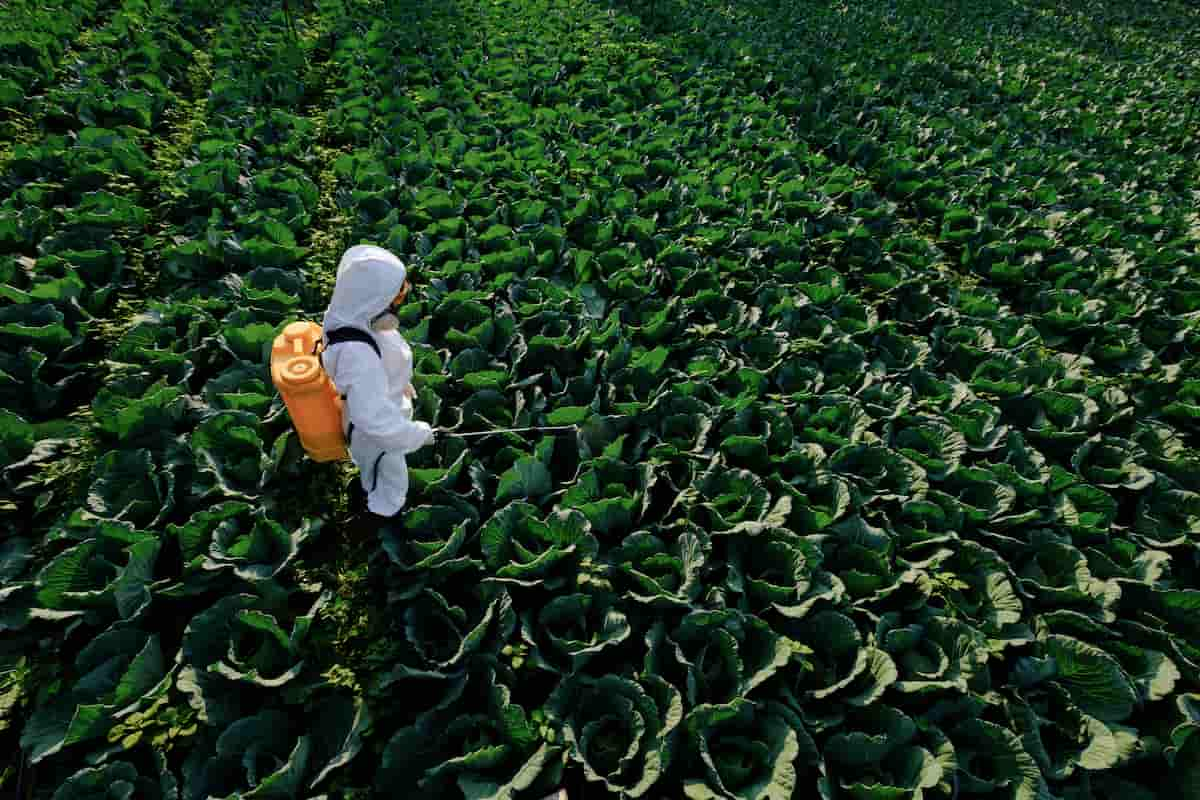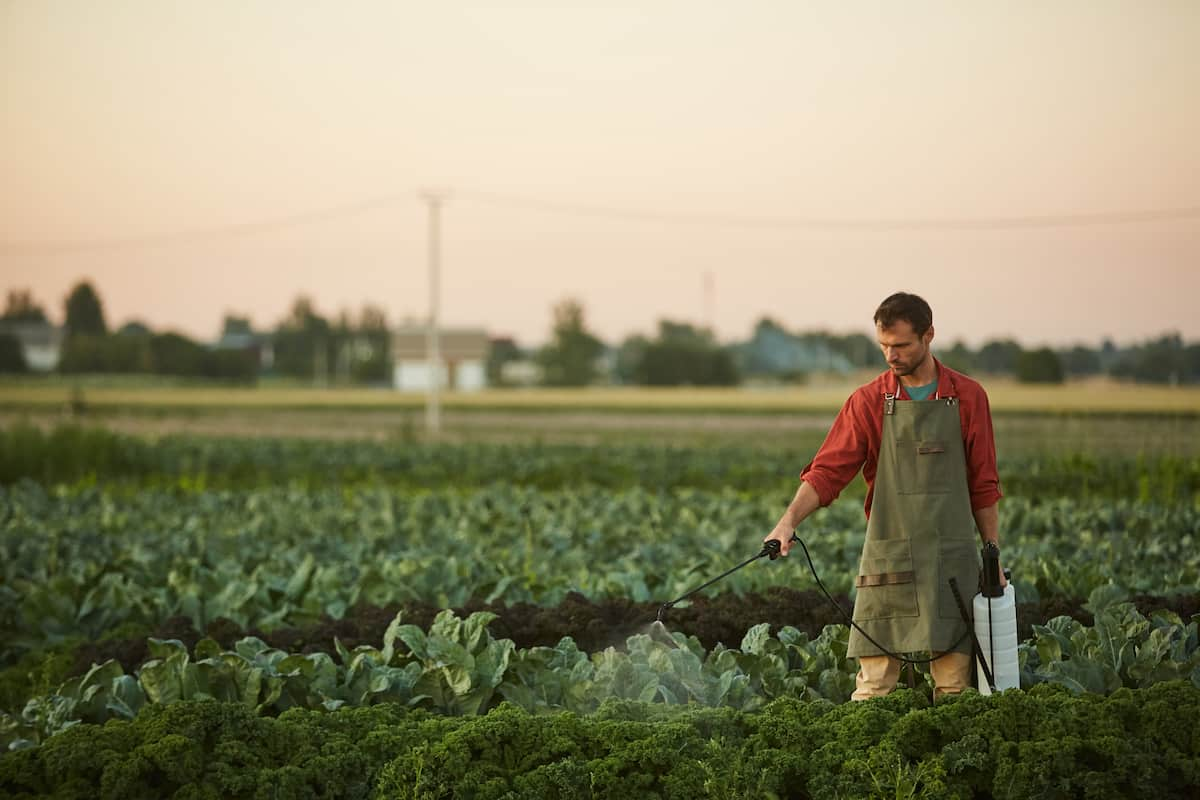As a gardener or Farmer, you undoubtedly know how important it is to fertilize your plants so that they can grow and survive. However, choosing the best garden can take time and effort with so many fertilizers available. Water soluble fertilizers, intended to dissolve quickly in water and provide plants with a quick-acting dose of nutrients, are one popular choice.

Water soluble fertilizers have numerous advantages in the yard. Primarily because they are highly customizable, allowing you to tailor nutrient ratios to your particular plants and soil. Furthermore, plants benefit from quicker development and increased yields due to increased nutrient absorption due to their fast dissolving. Water soluble fertilizers are also simple to use and can be applied in various ways, such as a foliar mist or in a watering can.
Guide to Using Water-Soluble Fertilizers
What are Water Soluble Fertilizers?
Fertilizers that can be easily dissolved in water are called water-soluble fertilizers. The nutrients in these fertilizers are intended to quickly and efficiently absorb by plant roots, leading to faster plant growth. In contrast to other fertilizers, the plant completely absorbs water-soluble fertilizers and leaves no excess nutrients or hazardous toxins in the soil.
- Most water-soluble fertilizers, such as nitrogen, phosphorus, and potassium, contain macronutrients needed for plant growth and development. These nutrients are typically enumerated on the label as numbers in a specific order.
- For example, a fertilizer ’10-8-5′ would contain a high concentration of nitrogen, a moderate concentration of phosphorus, and a low potassium concentration.
- Water-soluble fertilizers usually contain important micronutrients like magnesium, calcium, molybdenum, sulfur, and copper.
- Gardeners can use water-soluble fertilizers to provide their plants with a balanced and individualized nutrient blend that promotes healthy growth and maximum yields.
Advantages/ Benefits of Water-Soluble Fertilizers
Water-soluble fertilizer is a type of fertilizer that easily dissolves in water and has advantages over traditional fertilizers.
- Efficient absorption: Water-soluble fertilizer can be absorbed directly by the roots and foliage of crops, resulting in a more than double effective absorption rate compared to ordinary chemical fertilizers. This can solve the nutritional needs of high-yielding crops during the rapid growth period.
- Water and fertilizer integration: By combining water and fertilizer, it can realize the integration of water and fertilizer, which results in an immediate fertilizer effect and improved fertilizer utilization rate.
- Cost savings: The water requirement is only 30% of the normal fertilizer when using drip irrigation with a water-soluble fertilizer. It can also be applied with less manual labor, which results in significant cost savings.
- Flexible application: Water-soluble fertilizers have various formulations and flexible application methods. They can be applied through soil watering, foliar spraying, drip irrigation, and soilless cultivation.
- Better yield: By controlling the amount of fertilizer applied and avoiding flushing water-soluble fertilizers, it is possible to achieve better yield, high quality, and high efficiency.
- Environmentally friendly: Water-soluble fertilizer is an environmentally friendly fertilizer that can be easily sprayed and used with spray drip irrigation to improve fertilizer utilization. It also helps to reduce environmental pollution and labor costs.
- Broad application: Water-soluble fertilizer has different formulations for various crops and is widely used in vegetables, fruit trees, flowers, grain, cotton, oil, and other crops.
In case you missed it: Benefits of Neem Cake Fertilizer: How it Differs from Other Composts

Application Methods of Water-Soluble Fertilizers
Water-soluble fertilizers offer flexible application methods, including soil watering, foliar spraying, drip irrigation, and soilless cultivation. Farmers must avoid flushing water-soluble fertilizers, control the amount of fertilization, and apply it alone or with non-alkaline pesticides. The scope of use includes vegetables, fruit trees, flowers, grains, cotton, and oil crops. The economic benefits of using water-soluble fertilizers are high due to the demand for high-quality vegetables. However, the high cost of field crop fertilization limits its usage.
How Often to Use Water-Soluble Fertilizers
- The frequency of fertilizer application depends on crop type, soil type, and climate. As a general guideline, applying water-soluble fertilizer every 2-3 weeks during the growing season is recommended.
- Monitoring the soil and plant nutrient levels regularly is essential to determine if the fertilization schedule needs adjustment. This can be done using a soil test kit or sending soil samples to a lab for analysis.
- Over-fertilization can be harmful to plants and the environment. Therefore, it is important to apply fertilizer only as needed and avoid applying it during drought or heavy rainfall.
How to Mix Water-Soluble Fertilizers
- To begin, collect sufficient water in a clean container. The specific variety of crops and their growth stage will determine the required amount of water.
- Slowly add the water-soluble fertilizer to the bucket while stirring continuously. It is essential to add the fertilizer gradually to prevent clumping.
- Continue stirring until the fertilizer is completely dissolved. This ensures that the nutrients are evenly distributed.
- Check the pH level of the nutrient solution and adjust it if necessary. Most crops grow well in slightly acidic soil with a pH range between 6.0 and 6.5.
- Use the fertilizer immediately, or store it in a covered container. Stored fertilizer should be used within a week.
- The recommended mixing ratio depends on the crop type and stage of growth. For example, young plants require a lower concentration of nutrients than mature plants. The NPK ratio of the fertilizer also affects the mixing ratio.
Best Practices for Using Soluble Water Fertilizers
- Correct application of fertilizers is essential for achieving optimal crop growth and yield. Water-soluble fertilizers offer various application methods, including foliar spray, drip irrigation, and fertigation.
- Selecting the right application method is essentially based on the crop’s specific needs to make the most out of water-soluble fertilizers.
- Even efficient fertilizer application is crucial to prevent over or under-fertilization, which can harm plants and reduce yields.
- Hydroponic systems benefit greatly from water-soluble fertilizers since they quickly dissolve in nutrient-rich water, making them ideal for precise nutrient delivery.
- Fertilizers with high micronutrient content, such as 07-12-40, 09-0-43, 10-50-10, 18-09-18, and 17-10-27, are highly recommended for hydroponics.
- These minerals promote healthy plant growth and development, leading to high-quality yields.
In case you missed it: How to Make Coffee Grounds Compost Fertilizer: Homemade Recipe, DIY for Container, Indoor, and Backyard Garden Plants

Conclusion
Utilizing water-soluble fertilizers can significantly benefit your garden by supplying plants with essential nutrients. You can maximize the potential of your garden and achieve high yield, high quality, and high efficiency by adhering to proper application methods and best practices.
- Ultimate Guide to Ossabaw Island Hog: Breeding, Raising, Diet, and Care
- Ultimate Guide to Juliana Pig: Raising Facts, Size, Diet, Care, and Lifespan
- Raising Lleyn Sheep: Disadvantages, Price, Uses, Characteristics, and Care
- Ultimate Guide to Meishan Pig: Breed Facts, Breeding, Raising, and Care
- Ultimate Guide to Teacup Pigs: Raising, Diet, Lifespan, Cost, and Care
- Guide to Raising Poll Dorset Sheep: Facts, Profile, Characteristics, Uses, and Care
- Ultimate Guide to Bighorn Sheep: Characteristics, Diet, Lifespan, Breeding, and Lifecycle
- Ultimate Guide to Raising Katahdin Sheep: Farming Facts, Breed Profile, Uses, and Care
- Ultimate Guide to Raising Oreo Cows: Belted Galloways Farming Facts, Profile, Uses, and Care